Our school is a Green School. We are very proud to have achieved the flags for Litter and Waste, Energy and Water.
In April 2018 we were delighted to be awarded our Green Flag for water! Our excellent Green School Committee not only raised awareness around water conservation but also identified and either fixed or reduced water leaks throughout the school. It takes a huge amount of work and dedication and the Green School Committee deserve enormous recognition for their determination and success.

The Committee
The Green-Schools committee (aka the Eco Team) is made up of Grace, Stephanie, Hollie, Louise, Ciaran, James, Hannah, Eimear, Tadhg, David, Ms Crean and Mags. Over the next year and a half the Eco Team will be working very hard towards achieving the Travel flag.
Davidstown PS Walkability Audit Report
Our Water Flag was achieved in 2018. Read on to find out more about our work to conserve water in our school. Even though we have moved on to the next challenge, we continue to keep these measures in place.
Meetings and Forums
The Eco Team meet roughly every two weeks to review their progress and make further plans.
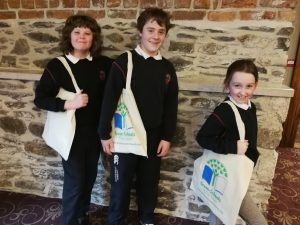
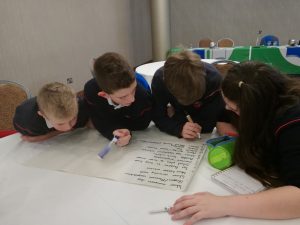
Roles of responsibility
We have Leak Detectives, Water Wardens, Water Harvesters, Waste Warriors and Energy Savers. The roles are rotated to ensure both committee members and non-members can play a part in caring for our environment.
Environmental Review
Doing a review helps to identify the initial situation within the school regarding the environmental theme of water.
Water Audit
Using a tick system, we found that on average we use
9.52 litres per person per day!
Water Use Survey
The Eco Team counted the number of taps, toilets and radiators in the school.
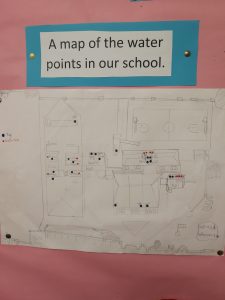
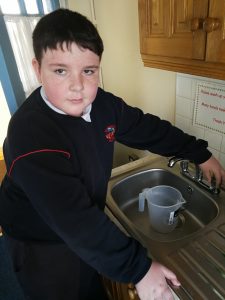
Leak Tests
We checked the taps, cisterns and radiators for leaks. We found that one cistern and one radiator was leaking. Ms. Connolly was informed immediately and the leaks were fixed. As we have no meter it is difficult to tell if there is a major leak. The school grounds were checked for excess water but none was found.
Home Water Surveys
The committee wrote a survey on ‘Water Usage at Home’ and asked their parents to kindly fill it in. We got a huge response and found that our parents have a good general awareness of water conservation.
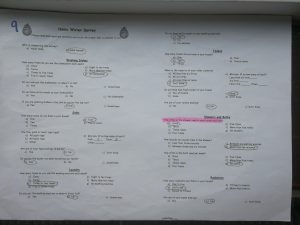
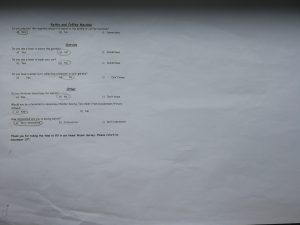
Other findings:
- There is little awareness of reasons to conserve water among students.
- In the staffroom, the tap is left running while the dishes are being cleaned.
- When refilling their bottles, a lot of student leave the tap running waiting for the water to cool.
- In the classroom, the tap is left running while washing up after art.
- A hose is used to water the garden.
- Water left in the kettle is thrown away the next morning.
- The washing machine is put on once a week.
- The dishwasher is not used.
- The following cleaning products were used: Fairy Washing up liquid, Flash and Domestos.
- There’s no policy on water and water conservation and for the use of non-hazardous cleaning products.
- Rainwater isn’t harvested in the school.
Action Plan
The committee wrote an Action Plan packed full of great ideas. The plan is on the Green-Schools noticeboard for all to read!
Our aims are
- to reduce water consumption within the school by 10% in one year
- to raise awareness within the school community and to encourage them to save water in school and at home
- to raise awareness within the local community and to encourage them to save water
- to reduce the level of water pollution caused by the school
- to continue to reduce waste and conserve energy
Committee Work
The Eco Team did a huge amount of work to save water and create awareness!
Green Code
The Eco Team put their heads together and came up with a great School Water Code.
‘In Davidstown we save water
so our Earth’s lifespan won’t be shorter.’
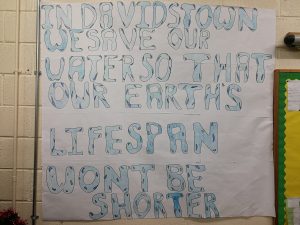
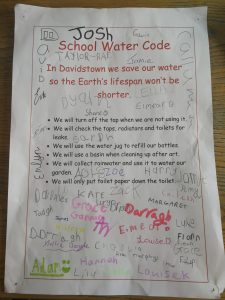
Water Motto
The water motto can now be found at every sink in the school.
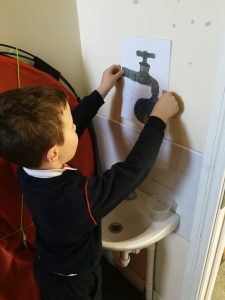
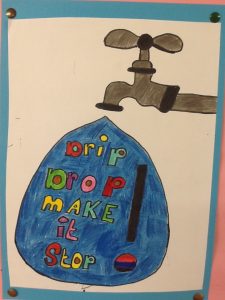
Water Mascot
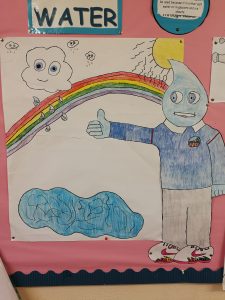
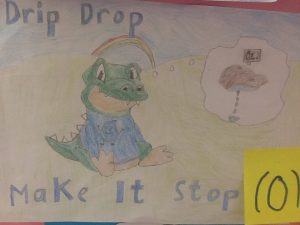
Water Point Marker
A water point marker can be found at every water point in the school creating an awareness about how much water is used daily.
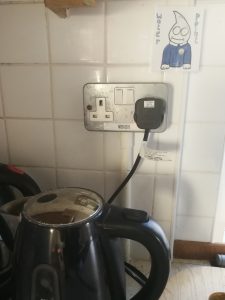
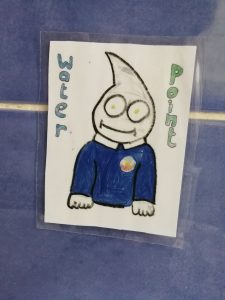
Teeth Brushing Experiment
We recorded the amount of water we use when we leave the tap on and turn the tap off while brushing our teeth. We found that turning the tap off uses 93% less water!
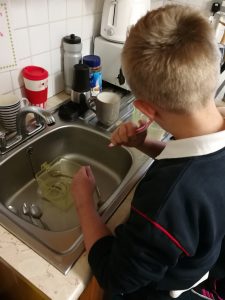
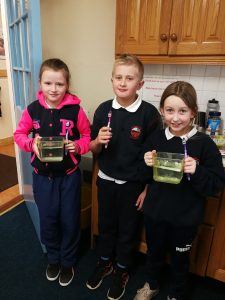
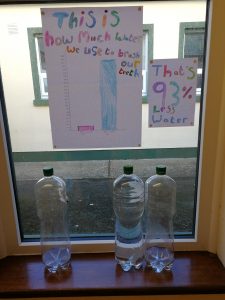
Water Displacement Devices
We put weighed water bottles into every cistern. This reduced the amount of water use per flush by 500ml!
Water Butt
We purchased a water butt and plan to use the rainwater collected to water the flowers, fruit and vegetables in our school garden.
Water Use Posters
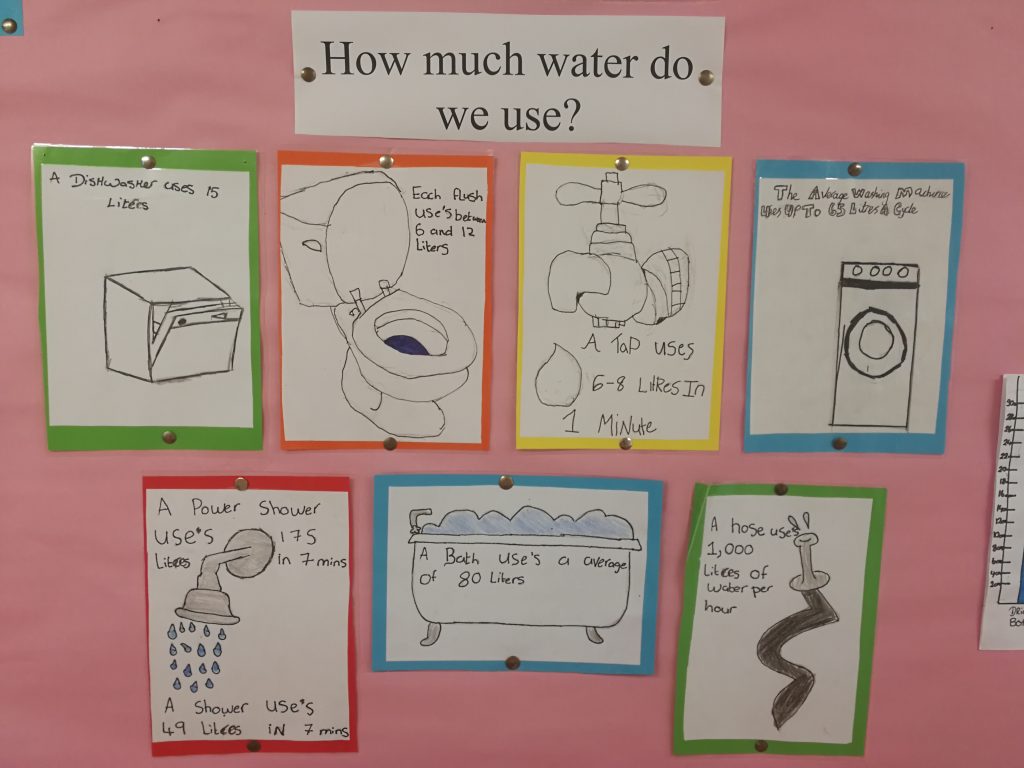
Other:
- We bought basins for the classroom and staffroom sinks.
- We put a jug in the fridge. Pupils and staff can refill their water bottles with cold water without having to run the tap.
- We no longer use the washing machine. The towels were replaced with recycled paper which can be conposted.
Monitoring
The ‘Water Wardens’ continuously check that taps aren’t left on and that the basins, jugs and water butt are being used. The ‘Leak Detectives’ check the taps and radiators every week and the cisterns every second month.
Evaluating
We did a follow-up School Water Audit exactly a year after the first and found that we now use
over 12% less water per person per day!
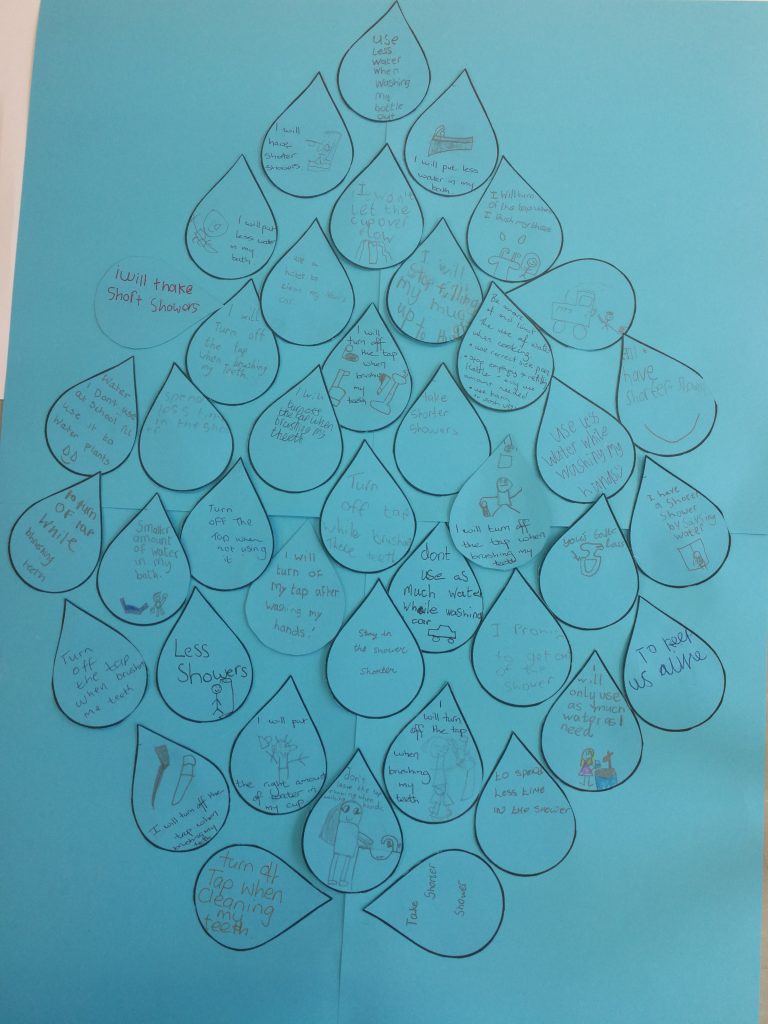
Class Work
There was a huge amount of work done by each class.
Whole School:
- Water and its conservation – Water as valuable resource; why need to conserve it; Identify and list water uses in school and home; Name ways to conserve water at home and in school; List ways we can save water in our school
- Water Cycle
- Plants need water
- Visit to Wexford Wild Fowl Reserve
- Importance of drinking water for a healthy body
- Floating and sinking
Junior Class:
- Pollution – plastic in water and the harm is causes
- Study of Antarctica
- Fish and mammals in the sea
- Life without water stories
- Writing Splash poems
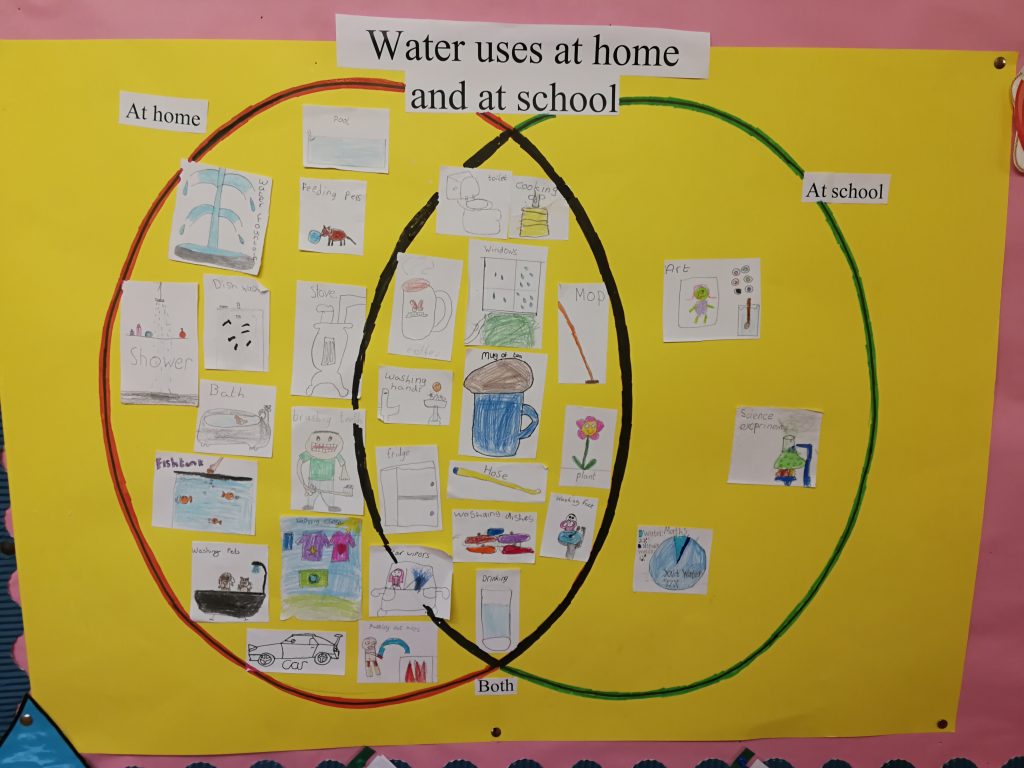
Senior Class:
- Water Explorer program;
- Pollution – Identifying water pollutants and their effects
- Identify the effect of our increasing population on water
- Study of seashore rock pools
- How did our grandparents get water? –interviewing
- Weather – Climate v weather; Global Warming – identify effect and consequences of Global warming; Global warming word cloud; Recording weather using a weather station
- Rivers of Ireland; Oceans & Seas of the world
- Tip sheet writing
- Water poverty around the world; Study of Cape town and Day Zero
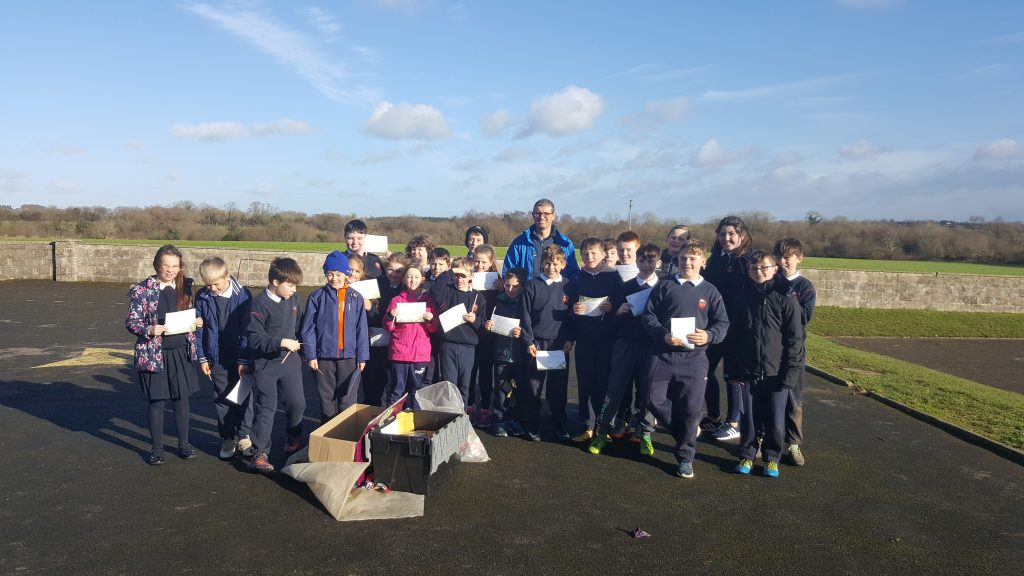
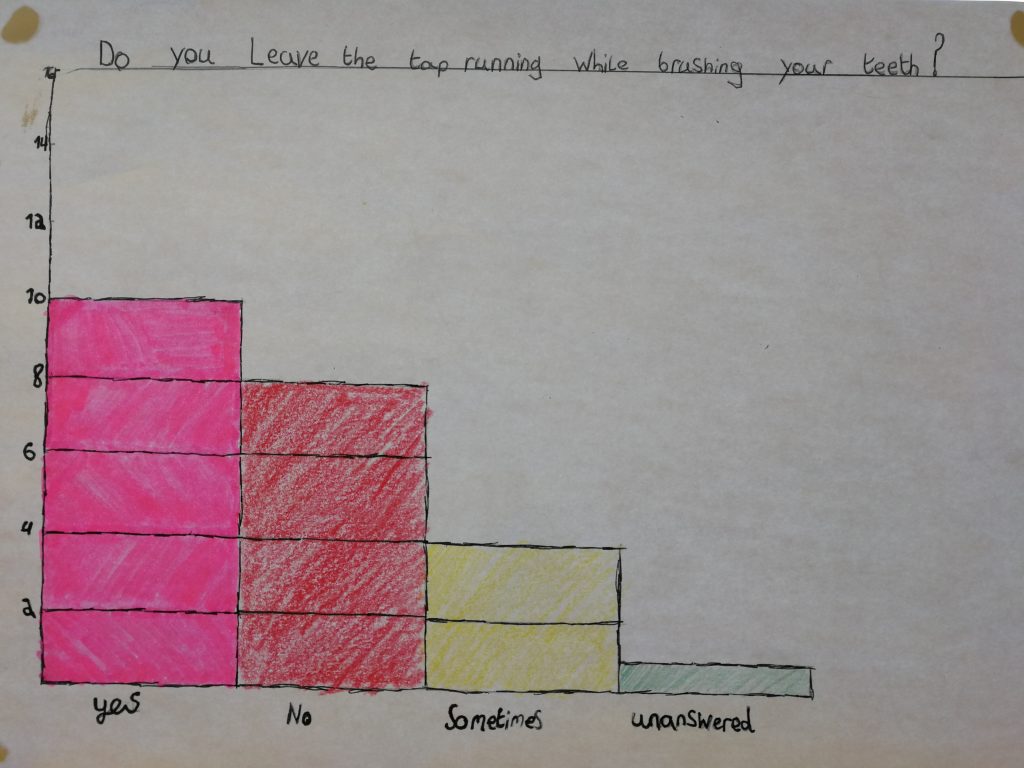
Blue Day
Our Day of Action took place on the 23rd of March 2018. We all wore blue!
Walk for Water
We took part in the national Walk for Water Campaign. We raised awareness about water scarcity in developing countries by going for a walk carrying items that symbolised water. It really opened our eyes!
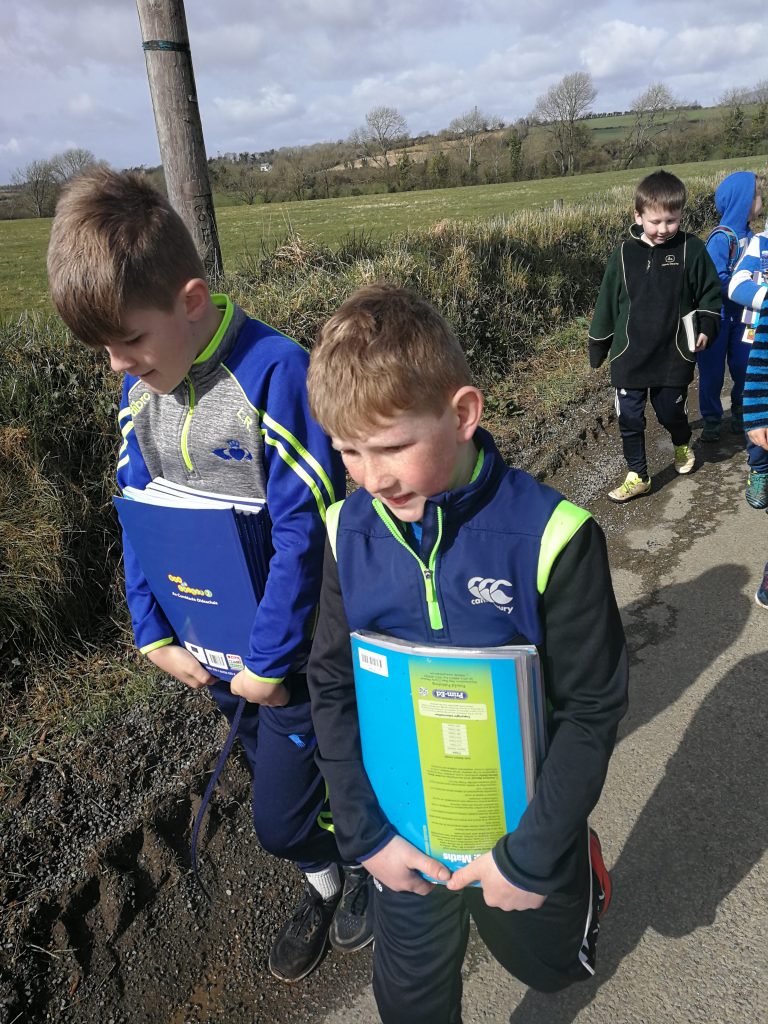
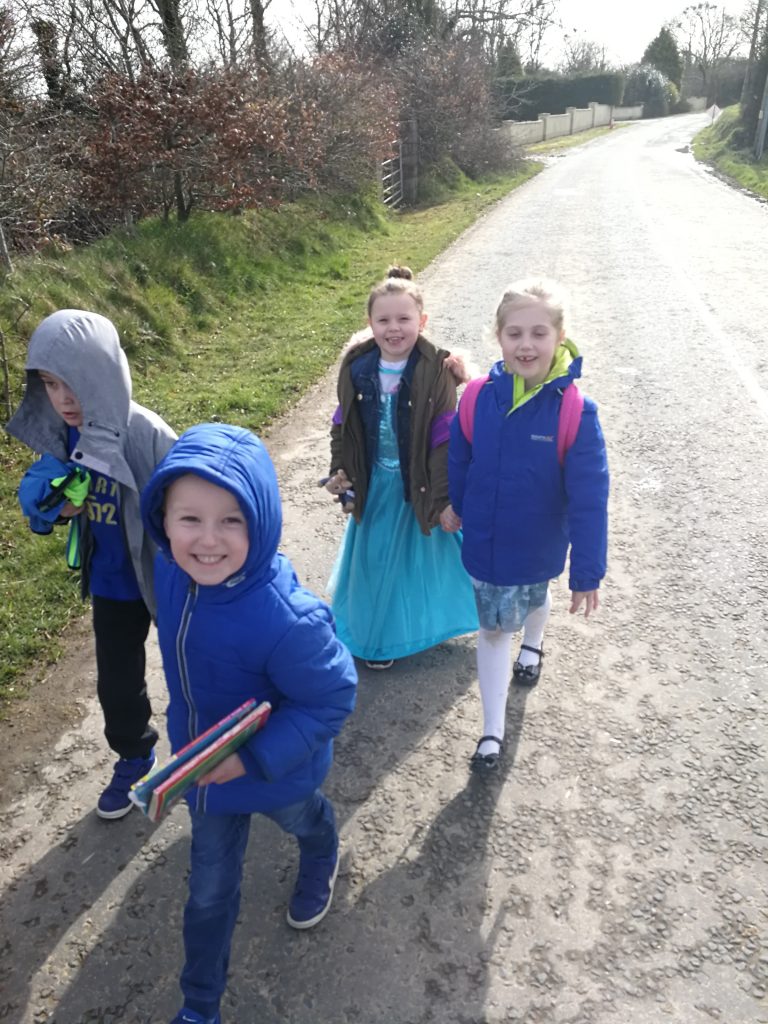
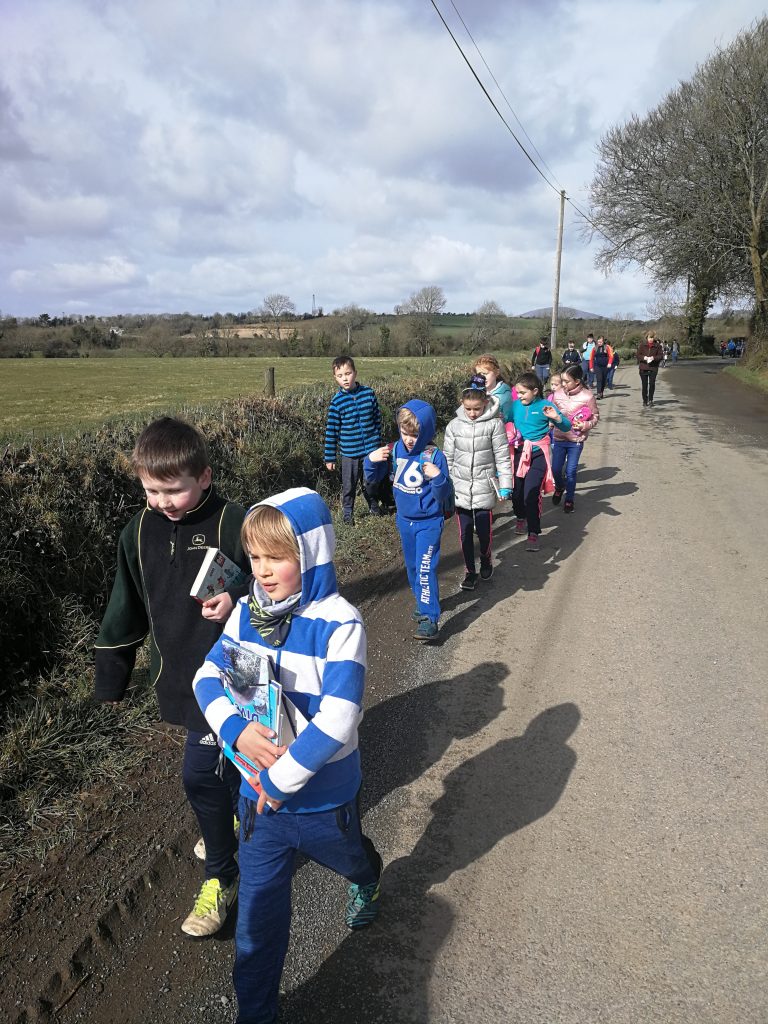
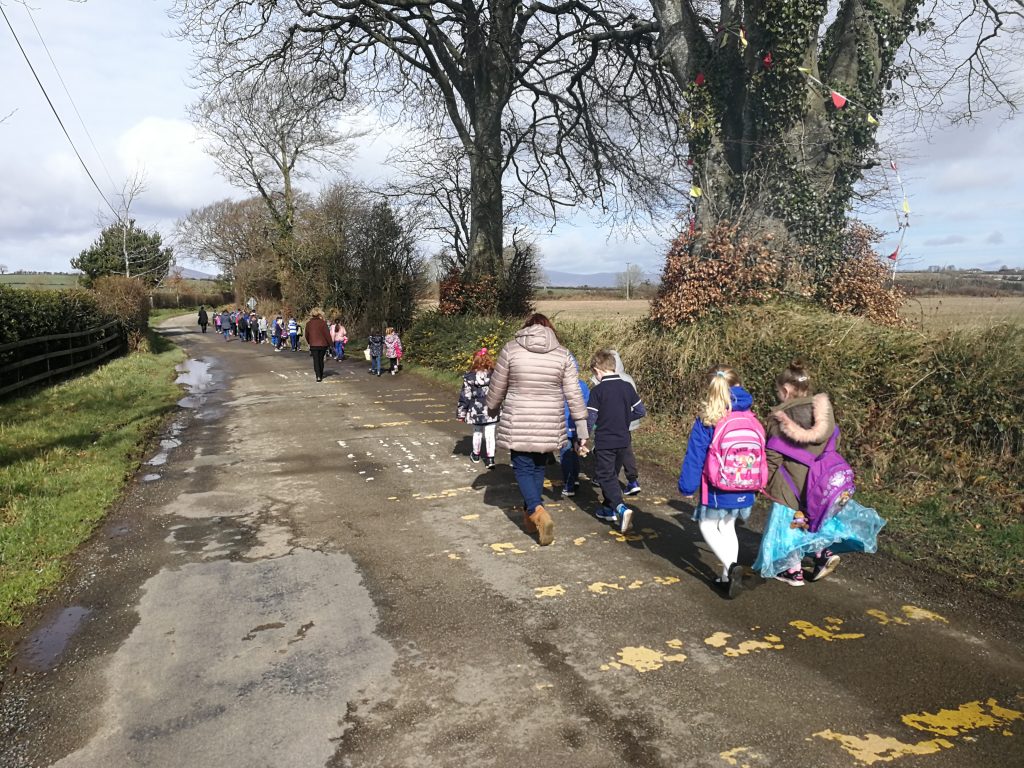
Water Treasure Hunt
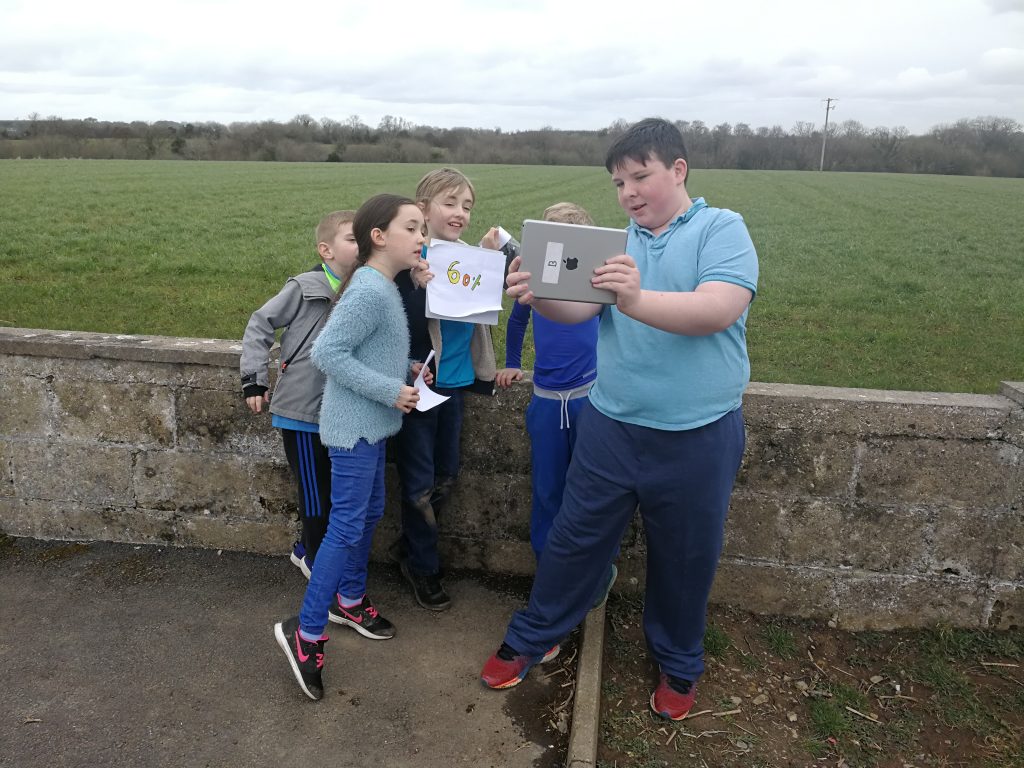
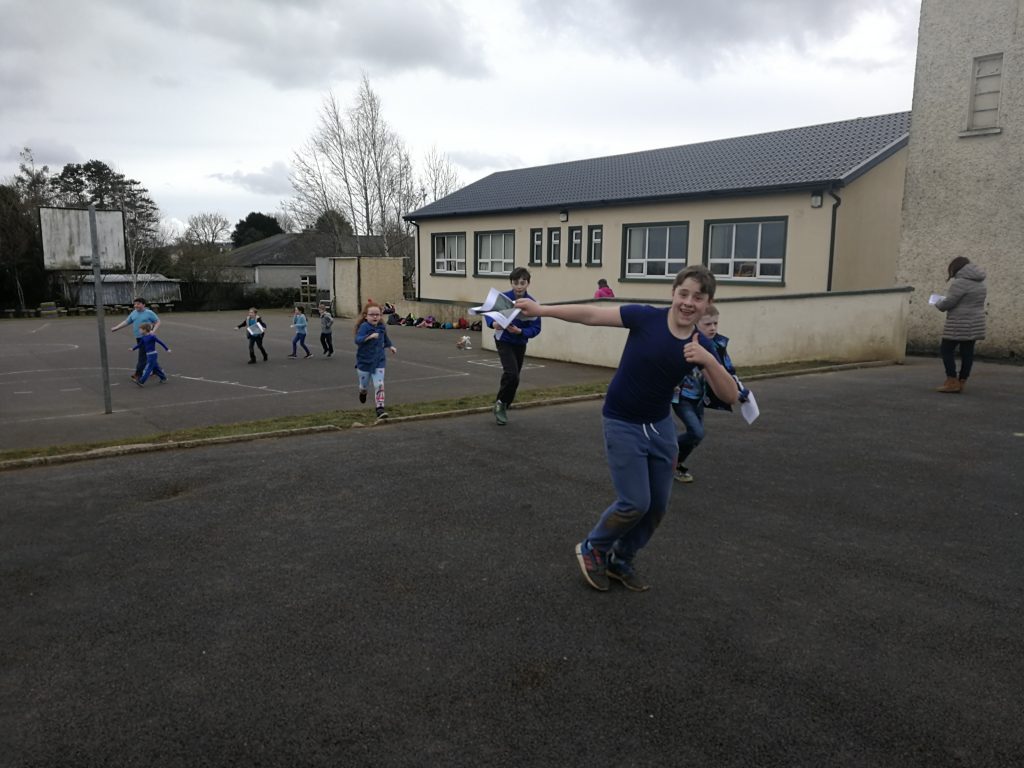
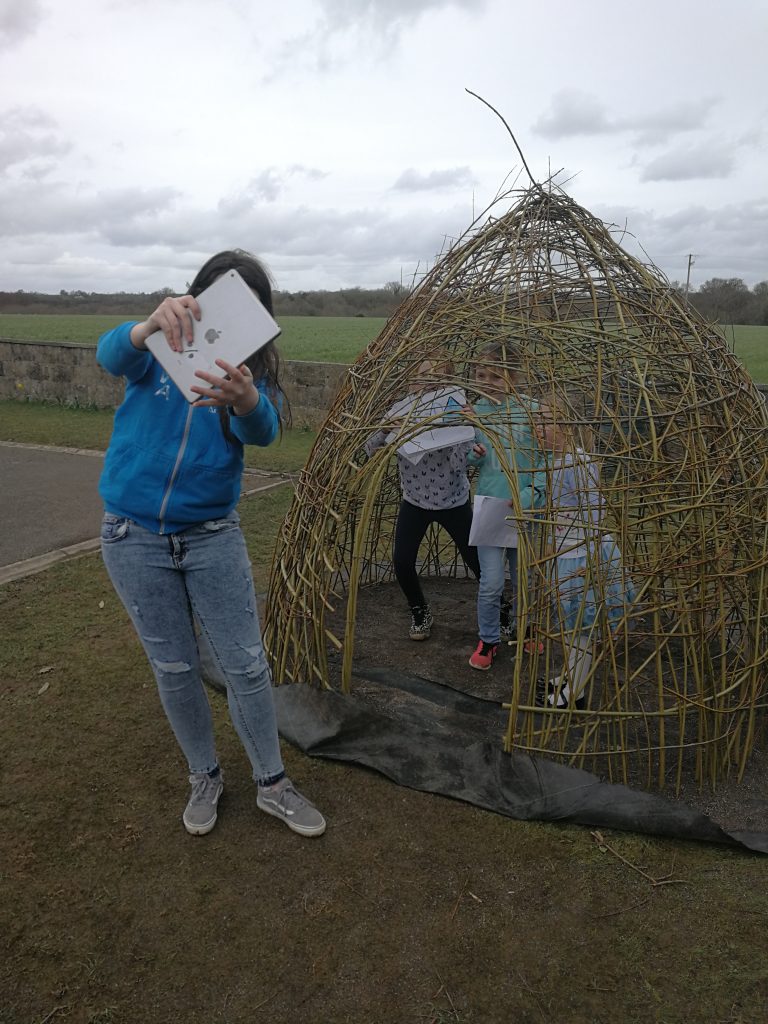
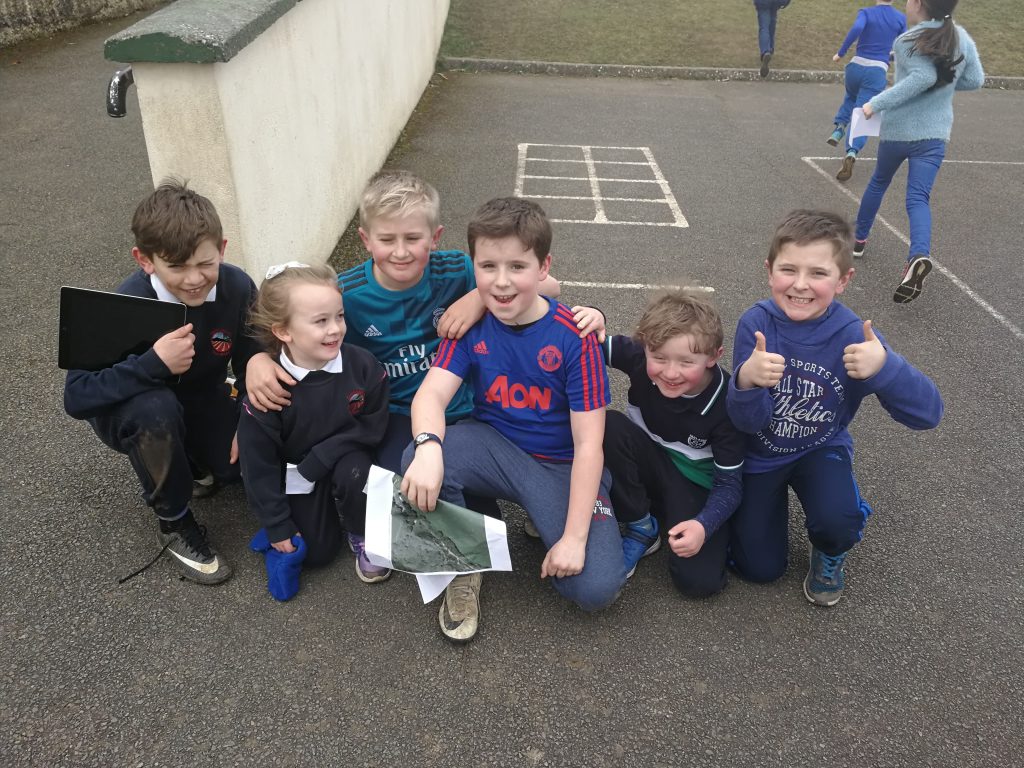
Informing others
Committee members share their plans and progress with their peers during assemblies and in-class presentations. They also inform their class and others through notices in the school newletter, Twitter and Facebook posts, the school website, the Green-Schools noticeboard and finally, presentations and displays during events and open days, such Grandparents day.
Reducing Litter and Waste
We believe in working together to help the environment in every way that we can. Our Waste Warriors check the classrooms every day. We compost, recycle and reuse all that we can.
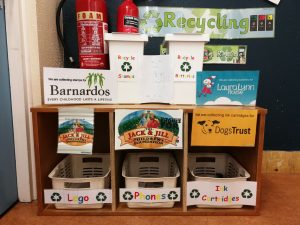
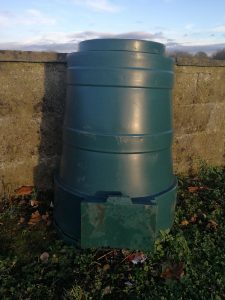
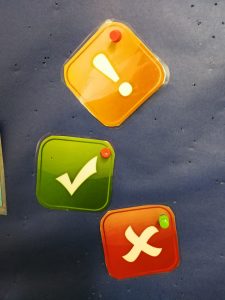
There are ‘Reusable Waste’ areas in each classroom for students to use for scrap work and in Aistear.
Seesaw, Facebook, Twitter and the school website are used to share school information with home and the wider community therefore keeping printing to a minimum.
Saving Energy
The ‘Energy Savers’ ensure that the lights and whiteboards are turned off when leaving the room, all computers are powered down at the end of the day and the iPads are only plugged in when the battery is lower than 20%.
